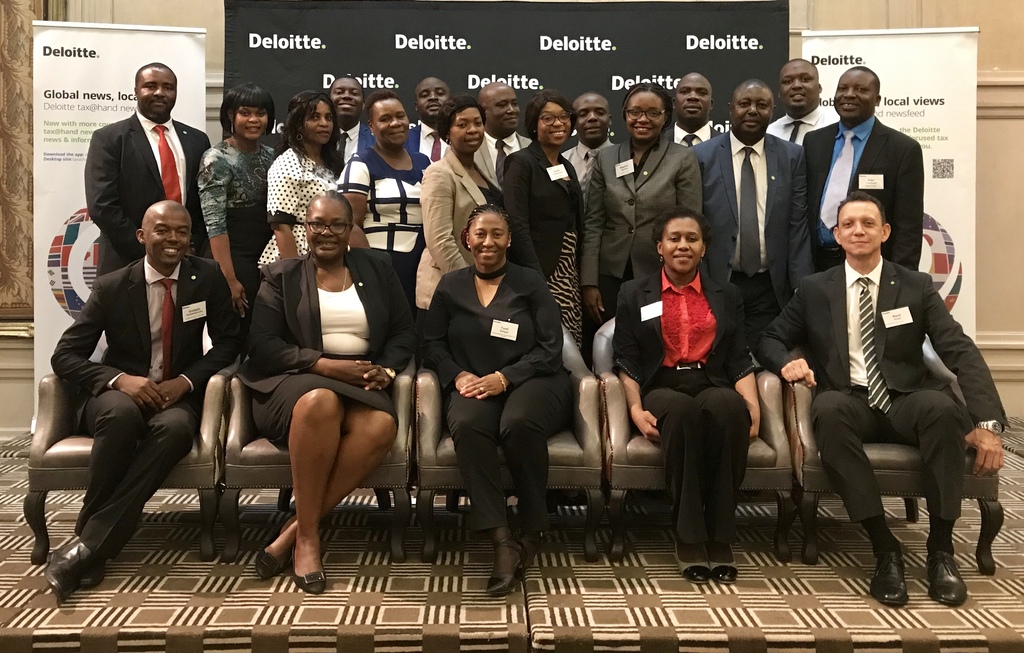By Charlene Kunira
The current, defining technology trends are having a significant impact in the tax arena and these are effecting many organisations’ tax function, and the role of tax professionals in Zimbabwe.
This has driven tax consulting firms to project into the future realising that it will be a period of significant technological advancement for the tax function within all organisations, regardless of size.
A Deloitte team of experts from across Africa and representatives from the Zimbabwe Revenue Authority (Zimra), shared how to embrace this technological transformations at a dialogue with senior personnel and agents in the tax sector in Harare recently.
In Zimbabwe, Deloitte operates as Deloitte & Touche (Zimbabwe) and is part of Deloitte Africa, a member of Deloitte Touche Tohmatsu Limited (“DTTL”)
Brian Mabiza, managing partner at Deloitte Zimbabwe, said that the world was being disrupted every day and with it the ability of man and systems to create large amounts of information.
“With these developments, technology and robotics are taking over. The information age has brought with it the necessity to handle, organise and process large amounts of data. These changes have also necessitated that our responses mutate and innovate to stay abreast of them.
“These shifts call for innovative ways to analyse and process the same. A fixed mind set cannot wish these changes away,” he said.
Commissioner Ramseck Masaire, responsible for domestic taxes at Zimra gave a breakdown of challenges, processes and changes happening within the revenue authority. Zimra, being the body responsible for collecting taxes and other revenue streams for the government in Zimbabwe derived its mandate from the Revenue Authority Act, passed by the parliament of Zimbabwe.
The Commissioner gave a breakdown of the Automated Systems for Customs Data ASYCUDA system that has been the subject of misunderstanding in the customs sector.
He told the audience that ASYCUDA was used across the world and is designed to help countries automate customs processes on the importation and exportation of goods to compile accurate trade statistics.
“The ASYCUDA system has been adopted as the official customs computer system in the COMESA region and is being used by several member states. Zimbabwe started using the ASYCUDA system for all commercial transactions during the 1991/1992 period,” Commissioner Masaire said.
He said the team at Zimra’s team acknowledged the challenges involving slow processes and unclear tax guidelines given to service users. In this regard they would be launching a call centre for better interaction with businesses to avoid disruption and improve service delivery.
Davidzo Chitengu of the Chamber of Mines reiterated that the increased interaction between taxpayers and the tax collector was critical as it presented an opportunity for business to forge synergies with other sectors that include agriculture, specifically tobacco, and in the Mining sector.
“These are a great source of foreign currency to the country. In Zimbabwe, an estimated revenue of US2.9 billion dollars is collected from just the mining sector and the database needs to be collated efficiently to allow accurate tax revenue collection and audit,” Mrs Chitengu said.
Mark Freer Director, tax and legal expert for Deloitte Africa Tax and Legal, took the opportunity to paint a picture of tomorrow’s tax function today. It involved the use of cognitive technologies, such as Robotic Process Automation, working together to underpin digital in finance.
“Cognitive systems employ technology and algorithms to automatically extract concepts and relationships from data, understand their meaning, and learn independently from data patterns and prior experience,” Freer explained.
In adopting new technologies, Freer advised participants to embrace and immerse themselves in things digital.
The risk to data security was an area of concern for participants. The growing threat and exposure to cyber-attacks required that personnel be well prepared through training and awareness programmes. This was an area that required urgent redress to prepare and prepare teams for the rapid technological changes that were sweeping across the tax sector.
The message that resonated at the dialogue was that digital had arrived and that tax practitioners should look at digital solutions to reduce the amount of the mundane tasks they do. This would give them the space and time to focus on analysing data and adding value to their functions
